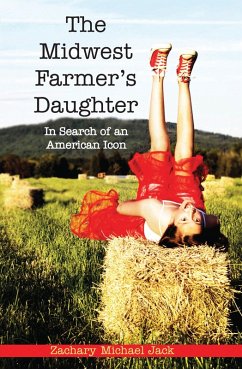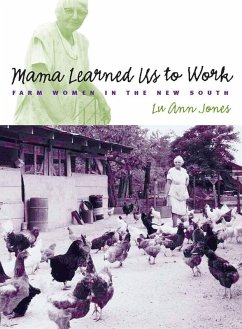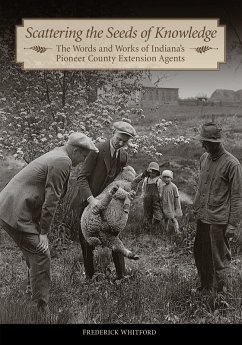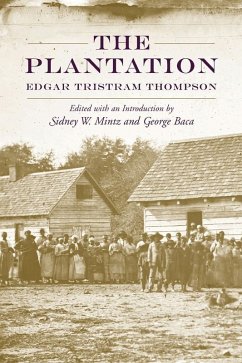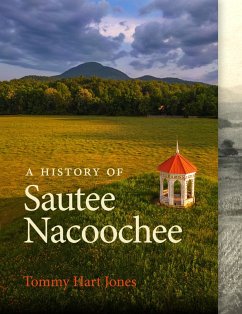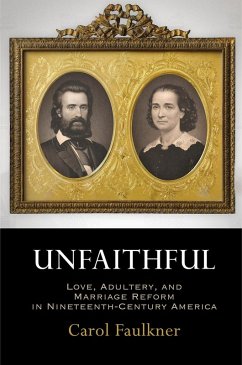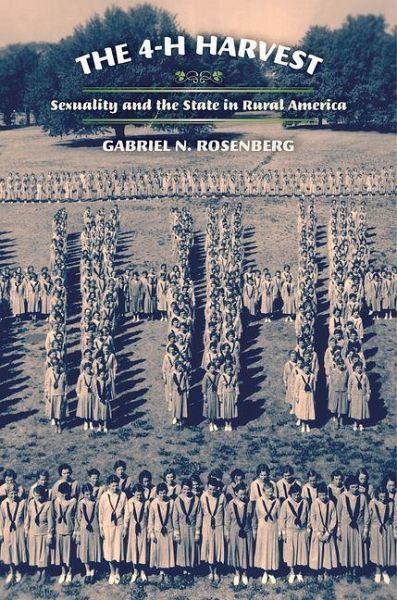
The 4-H Harvest (eBook, ePUB)
Sexuality and the State in Rural America

PAYBACK Punkte
26 °P sammeln!
4-H, the iconic rural youth program run by the U.S. Department of Agriculture, has enrolled more than 70 million Americans over the last century. As the first comprehensive history of the organization, The 4-H Harvest tracks 4-H from its origins in turn-of-the-century agricultural modernization efforts, through its role in the administration of federal programs during the New Deal and World War II, to its status as an instrument of international development in Cold War battlegrounds like Vietnam and Latin America.In domestic and global settings, 4-H's advocates dreamed of transforming rural ec...
4-H, the iconic rural youth program run by the U.S. Department of Agriculture, has enrolled more than 70 million Americans over the last century. As the first comprehensive history of the organization, The 4-H Harvest tracks 4-H from its origins in turn-of-the-century agricultural modernization efforts, through its role in the administration of federal programs during the New Deal and World War II, to its status as an instrument of international development in Cold War battlegrounds like Vietnam and Latin America.
In domestic and global settings, 4-H's advocates dreamed of transforming rural economies, communities, and families. Organizers believed the clubs would bypass backward patriarchs reluctant to embrace modern farming techniques. In their place, 4-H would cultivate efficient, capital-intensive farms and convince rural people to trust federal expertise. The modern 4-H farm also featured gender-appropriate divisions of labor and produced healthy, robust children. To retain the economic potential of the "best" youth, clubs insinuated state agents at the heart of rural family life. By midcentury, the vision of healthy 4-H'ers on family farms advertised the attractiveness of the emerging agribusiness economy.
With rigorous archival research, Gabriel N. Rosenberg provocatively argues that public acceptance of the political economy of agribusiness hinged on federal efforts to establish a modern rural society through effective farming technology and techniques as well as through carefully managed gender roles, procreation, and sexuality. The 4-H Harvest shows how 4-H, like the countryside it often symbolizes, is the product of the modernist ambition to efficiently govern rural economies, landscapes, and populations.
In domestic and global settings, 4-H's advocates dreamed of transforming rural economies, communities, and families. Organizers believed the clubs would bypass backward patriarchs reluctant to embrace modern farming techniques. In their place, 4-H would cultivate efficient, capital-intensive farms and convince rural people to trust federal expertise. The modern 4-H farm also featured gender-appropriate divisions of labor and produced healthy, robust children. To retain the economic potential of the "best" youth, clubs insinuated state agents at the heart of rural family life. By midcentury, the vision of healthy 4-H'ers on family farms advertised the attractiveness of the emerging agribusiness economy.
With rigorous archival research, Gabriel N. Rosenberg provocatively argues that public acceptance of the political economy of agribusiness hinged on federal efforts to establish a modern rural society through effective farming technology and techniques as well as through carefully managed gender roles, procreation, and sexuality. The 4-H Harvest shows how 4-H, like the countryside it often symbolizes, is the product of the modernist ambition to efficiently govern rural economies, landscapes, and populations.
Dieser Download kann aus rechtlichen Gründen nur mit Rechnungsadresse in A, D ausgeliefert werden.




